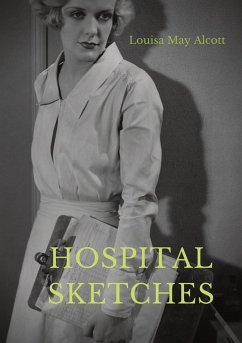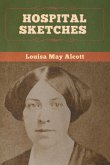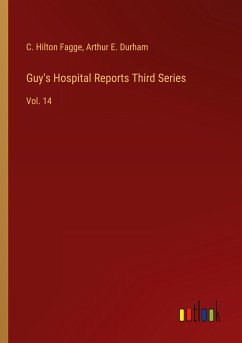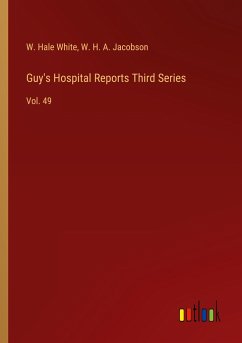Hospital SketchesLouisa May Alcott 1862 Hospital Sketches (1863) is a compilation of four sketches based on letters Louisa May Alcott sent home during the six weeks she spent as a volunteer nurse for the Union Army during the American Civil War in Georgetown.Tribulation Periwinkle opens the story by complaining, "I want something to do." She dismisses suggestions to write a book, teach, get married, or start acting. When her younger brother suggests she "go nurse the soldiers", she immediately responds, "I will!" After substantial hardship in trying to obtain a spot, she has further difficulty finding a place on the train. She then describes her travel through New York, Philadelphia, and Baltimore en route to Washington DC.Immediately after her arrival, Periwinkle must attend to the wounded from the Battle of Fredericksburg. Her first assignment is washing them before putting them to bed. She converses with the various wounded soldiers, including an Irishman and a Virginia blacksmith. The death of the blacksmith, a man named John, in particular touches her deeply.After the Civil War broke out, the town of Concord, Massachusetts rallied, inspiring many young men to volunteer. The company assembled on the town common on April 19, 1861, the anniversary of the Battles of Lexington and Concord as they set off. Louisa May Alcott wrote to her friend Alf Whitman that it was "a sight to behold". She was disappointed that she had to stay behind, lamenting, "as I can't fight, I will content myself with working with those who can."She joined local women who volunteered to sew clothes and provide other supplies. On her 30th birthday on November 29, 1862, she made up her mind to do more. She recorded in her journal, "Thirty years old. Decide to go to Washington as a nurse if I could find a place." She received her orders on December 11 and made her way to Georgetown, outside of Washington, D.C. While working as a nurse, Alcott contracted typhoid fever and was treated with mercury in the form of calomel. She survived but later recorded, "I was never ill before this time, and never well afterward."While serving as a nurse, Alcott wrote several letters to her family in Concord. At the urging of others, she prepared them for publication, slightly altering and fictionalizing them. The narrator of the stories was renamed Tribulation Periwinkle but the sketches are virtually authentic to Alcott's real experiences.The first of the sketches was published on May 22, 1863, in the abolitionist magazine Boston Commonwealth edited by family friend Franklin Benjamin Sanborn. The final sketch was published on June 26. Alcott herself did not care much for the writings, dismissing the idea that they were "witty", and admitted, "I wanted money." The pieces received great critical and popular acclaim making Alcott an overnight success.








